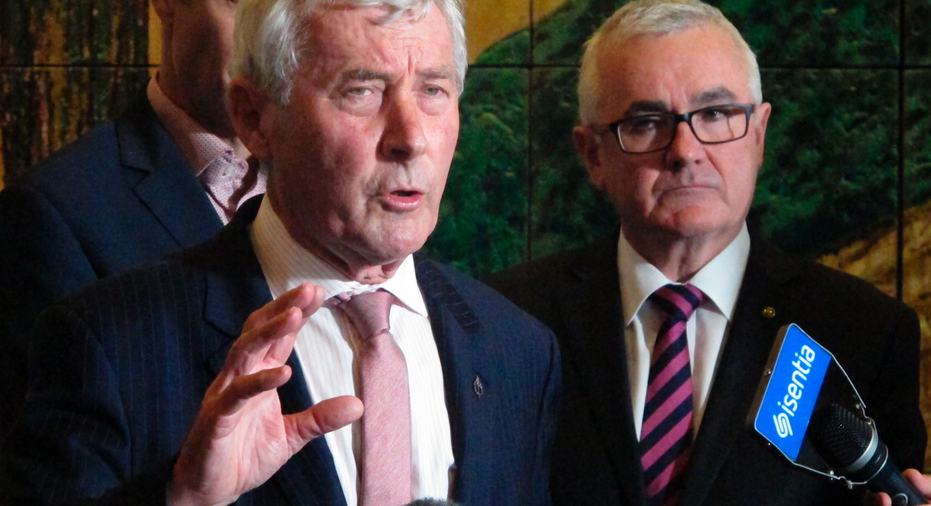Australian leader distances government from spy prosecution

CANBERRA, Australia – Australia's prime minister on Friday distanced his government from a decision to prosecute a former spy and his lawyer who accuse Australia of illegally bugging the East Timorese Cabinet while negotiating a deal to share oil and gas revenue.
The Australian Secret Intelligence Service spy, who cannot be identified, and his lawyer Bernard Collaery will appear in the Canberra Magistrates Court on July 25 charged under the Intelligence Services Act with conspiracy to communicate ASIS information.
Prime Minister Malcolm Turnbull said while his Attorney General Christian Porter had approved the charges, it was Commonwealth Director of Public Prosecutions Sarah McNaughton who decided the men should be charged.
"The attorney general gave his consent and he advised me that he was considering the matter, so I was certainly aware that he was giving his consent to it, but it was ... consenting to a prosecution recommended by the DPP," Turnbull told reporters.
Turnbull said he would not comment on the case because it was before the courts.
Collaery said he and the former spy, who is known as Witness K, were victims of a vindictive prosecution by Turnbull's conservative Liberal Party because they had exposed illegal spying on the East Timor government in 2004.
"I will survive these rats who are pursuing me at the moment," Collaery told reporters on Thursday.
It is not clear whether the alleged bugging of ministers' offices took place before or after Turnbull was first elected to the government in October 2004.
The bugging allegedly took place while Australian and East Timor were negotiating a deal on sharing Timor Sea energy royalties which was signed in 2006. Australia won't comment on secret service operations
K was to testify at the International Court of Justice in The Hague in 2014 in support of East Timor's challenge to the validity of the 2006 treaty. East Timor argued the alleged espionage gave Australian negotiators an unfair advantage.
ASIS is an overseas spy agency that operates out of Australian embassies.
Officers from the Australian Security Intelligence Organization, the nation's main domestic spy agency better known ASIO, raided Collaery's offices and K's home in Canberra in late 2013. They seized documents and also K's passport, preventing him from leaving the country.
As well as conspiracy to communicate, Collaery has also been also been charged with communicating ASIS information. Collaery said he assumed ASIO had intercepted conversations he had with journalists.
The pair face a possible 2-year prison sentence on each charge if convicted.
Greg Barns, a spokesman for the Australian Lawyers Alliance advocacy group, said prosecutors' guidelines stated that laying charges had to be in the public interest.
"In a case where you've got a person who has exposed wrongdoing, and that is we now know that Australia participated in activities in East Timor — essentially spying on East Timor — one has to ask the question what this says to other whistleblowers around Australia," Barns said.
Collaery said the charges related to K complaining about the illegal bugging to the Inspector-General of Intelligence and Security, an independent watchdog that reviews the activities of Australia's six intelligence agencies and investigates complaints against them.
East Timor last year dropped its case against Australia in the United Nations' highest court as an act of goodwill ahead of agreeing on a new resources-sharing treaty.
In March, Australia, a wealthy nation of 25 million, signed a new treaty with its neighbor, a half-island nation of 1.5 million people who are among the poorest in the world, that gives East Timor most of the revenue from the oil and gas fields under the sea between them.



















